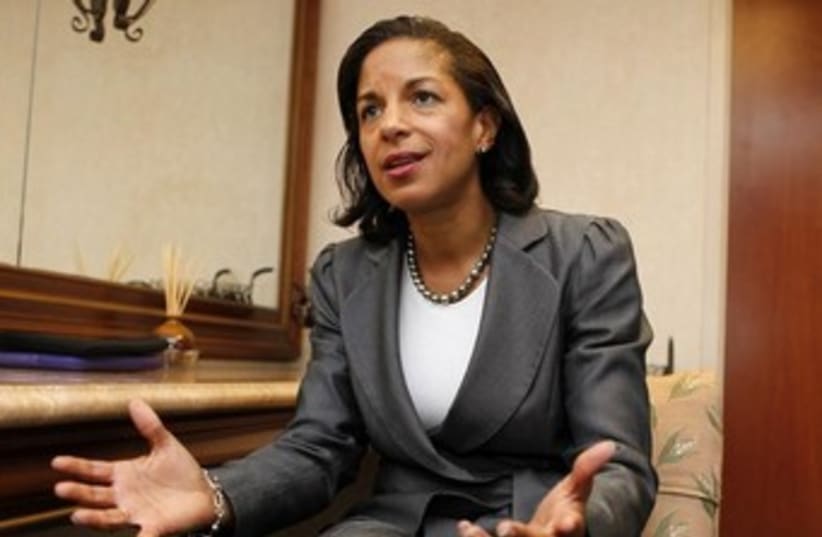Throughout the summer, scrap and whiteboard notes consumed the West Wing corner office of US National Security Advisor Susan Rice as she— with a small group of aides— tried to outline how the United States could finally pivot away from the Middle East.
As US President Barack Obama's first choice to succeed Hillary Rodham Clinton as secretary of state, Rice was pilloried by Republicans throughout 2012 over a series of television interviews she conducted over the killing of US ambassador Christopher Stevens in Benghazi, Libya.
And yet as national security advisor— a less visible role— Rice has been empowered to cast foreign policy on America's greatest challenges in the Middle East and North Africa from the White House, by the president's side, on a daily basis.
Rice was a leading voice pushing Obama to show American muscle in Syria. He did so powerfully in August, moving warships and threatening Bashar Assad with an assault for his use of chemical weapons against women and children.
In her summer review, Rice concluded that the US must forge final-status agreements on what she considered America's two greatest foreign policy goals: Iran's nuclear program and the Israeli-Palestinian conflict. White House aides considered the review a rare, macro inspection of policy in an administration known for incrementalism and pragmatism.
On Rice's project, US Secretary of State John Kerry— the one who got the job— effectively served as a consultant. Obama adopted her findings, and they have guided US foreign policy in the months since.
"In the near term, America’s diplomatic efforts will focus on two particular issues: Iran’s pursuit of nuclear weapons, and the Arab-Israeli conflict ," Obama said at the United Nations General Assembly in New York this year. "Real breakthroughs on these two issues ... would have a profound and positive impact on the entire Middle East and North Africa."
